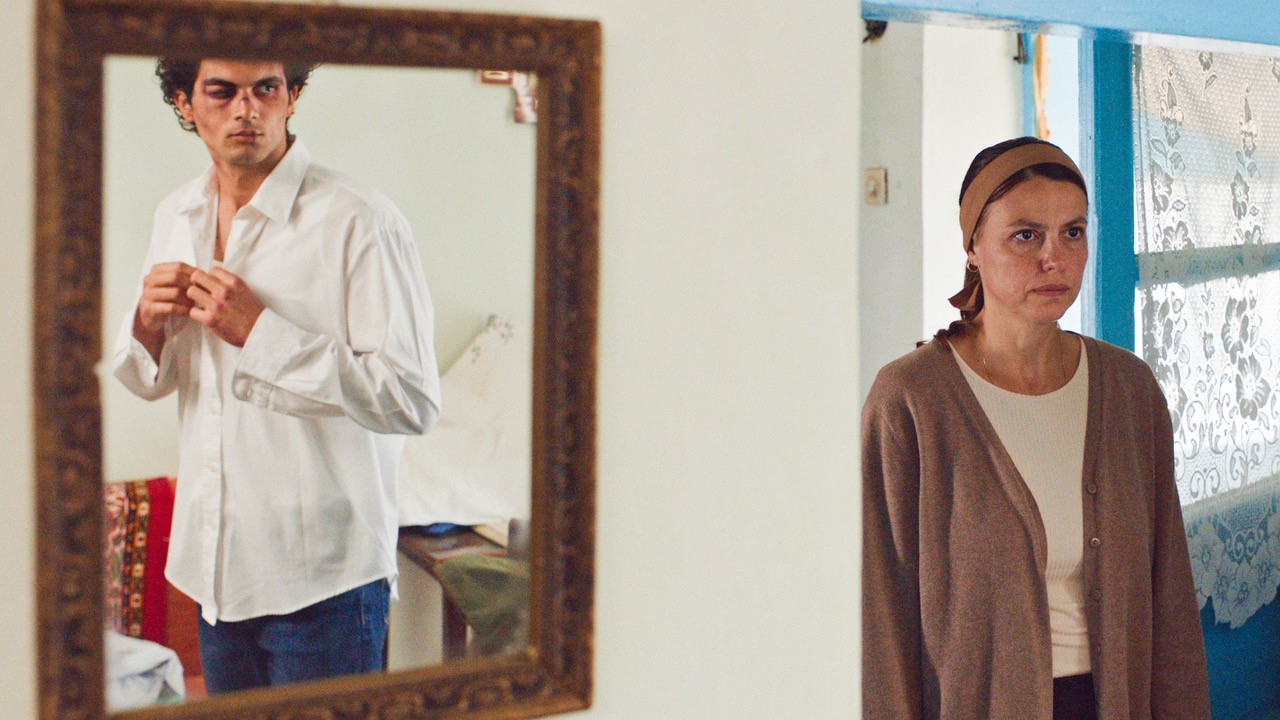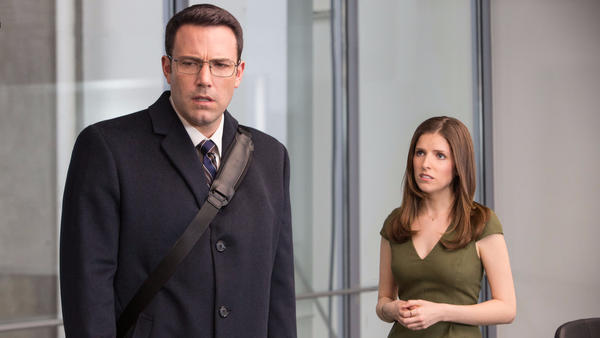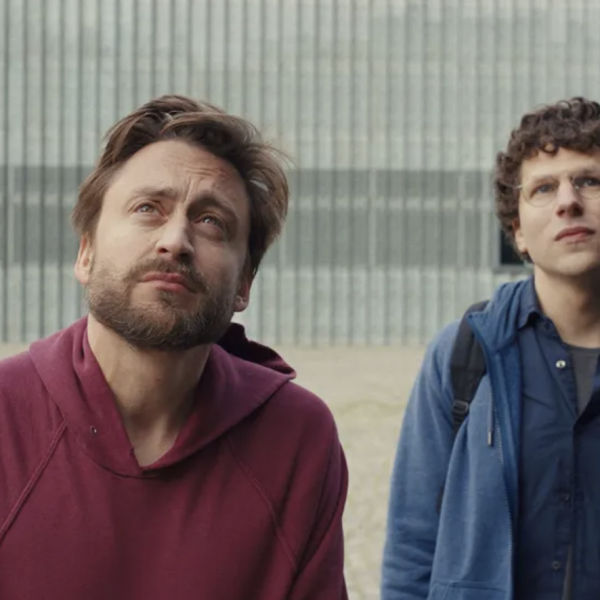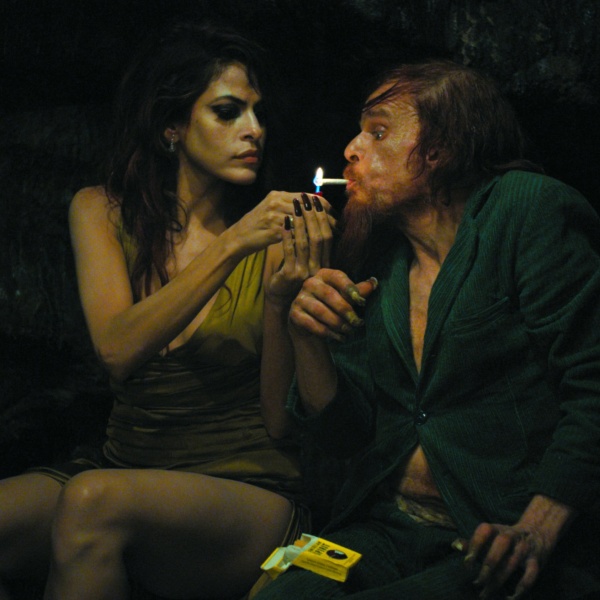“Three Kilometers at the End of the World,” the new film from Romanian actor turned filmmaker Emanuel Parvu, feels old-fashioned in its conceit and approach to a homophobic attack that spurs a remote Romanian village into moral panic. It’s obvious from the first frames what Parvu owes to Cristian Mungiu, the great Romanian filmmaker whom Parvu starred for in the film “Graduation.” “Three Kilometers” employs a clinical-distance perspective toward the story of how a brutally beaten, closeted 17-year-old’s trauma is doubted and exploited by his parents and townspeople. The feature, Parvu’s third, blends suspenseful procedural with family drama but is missing a key point of view: That of the victim, whose assault is a Trojan horse into the film’s more macro interest in how bigotry and conformity entwine, and how emotionally repressed adults deal with teen homosexuality when it hits close to home.
On Western screens of all sizes, we’ve dealt with this topic already, and closely. In the far-away-from-urban-Bucharest Romania of the Danube Delta, where “Three Kilometers” centers its drama, it’s just getting started. Adi (Ciprian Chiujdea) is a teen back at his hometown in between school semesters at a bigger city. And it’s here in this small village where his parents (Bogdan Dumitrache as the father and Laura Vasiliu as his mother) live off the land are deep in debt to an imperious neighbor. As shown in the film’s opening, the teenaged Adi has hooked up with a male tourist at a disco. Walking home, the tourist sucks a thorn out of Adi’s finger in a moment of gay tenderness that makes you think you’re watching one kind of movie before “Three Kilometers” shifts into the next: A movie where such tenderness threatens a community ideologically terrified of difference.
The next morning, Adi arrives home after an attack not shown onscreen, his face a bludgeoned purple mess of bruises and swollen eyelids, his phone nowhere to be found. Adi’s father enters into not quite a rage but a calculated mission to solve what happened, leading Adi and his parents to the police station to provide a statement he will come to regret as writer/director Parvu’s film begins to show its true cards.
The father’s search links him to the local police chief (Valeriu Andriuţă), who confuses personal interest with the actual needs and wishes of a townspeople intimidated by him. A few revelations come to light: Adi was beaten by two neighboring brothers, who are sons of Adi’s family’s debtor, after they saw Adi kissing the tourist. There’s a bit of light comedy when the chief and the assaulting boys and their father sit down for an interrogation, where wine and a spread of canapés are served on the table. Everyone is in each other’s pocket in this town, which will prove to make indicting the actual assailants responsible for this crime a tragic, Kafkaesque pile-up of why even bother. Surely that’s the case for any other crimes in this small village. The chief, at one point, tries to coerce Adi’s father into finding out whether the lost phone was actually stolen, as aggravated theft at nighttime is somehow a more punishable crime than regular old assault.
Meanwhile, Adi’s mother is a frustrating enabler of her husband’s doings. The film’s most devastating emotional scene starts with his mother confronting Adi about “kissing boys,” only for editor Mircea Olteanu (who also cut Mungiu’s “Graduation”) to cut to what is obviously the third act of a coming-out moment: Adi crying in his mother’s lap. It’s these short, sharp shocks of despair that give “Three Kilometers” its real edge.
What’s crucially missing throughout all of this, though, is any visual or thematic input from Adi himself. Often, cinematographer Silviu Stavilã shoots Adi from the back or side, perhaps to avoid exploiting Adi’s injuries for the morbid curiosity of the audience, but often it feels like Adi’s been quite literally blocked out of the frame. That extends to the screenplay, the qualms of which will awaken personal biases in viewers: “Three Kilometers” is not about Adi’s pain, but instead about how it erupts moral complication in those around him, testing their loyalties to themselves and each other. While the ensemble of “Three Kilometers” is small in scale, limited to just a few characters, an infectious hysteria begins to take course. The police chief warns Adi’s parents that bringing the assault to light will deliver unneeded scandal to the rural town, where the presence of iPhones feels like an anachronism when most of the older adults don’t know how one works.
And so, to avoid such controversy ruining their precarious bucolic lives and in thrall to a blackmailing neighbor who promises to wipe out their debt if they just shut up, Adi’s parents resort to horrifying measures: A ghastly exorcism where Adi is tied down by his own father, and a dogma-blinkered priest (Adrian Titieni) performs the ritual. It’s moments like these that inspire a needed jolt in the otherwise somberly unfolding “Three Kilometers,” which is heavy on furtive gazes and the massive literal distance between people across a wide aspect ratio. People whose pleas are but echoes from each other across a wide room.
Luckily, Adi has a good friend in Ilinca (Ingrid Micu-Berescu), a local girl who makes a necessary call for help once Adi appears to have gone missing. There’s great tension in a late scene involving a child services agent (Alina Berzunteanu), who while grilling Adi’s father, starts to read the room as to what’s really afoot, cigarette in hand. It’s a mark of the great performances here that Vasiliu as Adi’s mother and Titieni as the priest grow so gasping and ridiculous in their fealty to well-worn traditions. No one can see past the tenets that’ve been fed to them, and not even enough to help an innocent kid fumbling with his own identity.
Which returns “Three Kilometers” to its central issue. While the film is shrewd in laying out the various numbing and mundane bureaucracies that prevent Adi from actually getting help or finding comfort, Parvu appears not interested to examine Adi’s trauma. The boy has just been beaten for god’s sakes, and come out to his parents, and been forced to submit to a deranged Catholic ritual ripped out of a centuries-old playbook. Even the film’s last shot, albeit moving in the context of the scene, shows Chiujdea from behind, perhaps meant to show we are following him out from hell but still keeping us at a remove. American and European expectations for this kind of film will vary: Stateside, we are so entrenched in trauma narratives that, however necessary and overdue, maybe leave you wondering what’s happening on the other side.
Newcomer Ciprian Chiujdea’s performance, while limited in its screen time and the narrative bandwidth offered him, is the best in the film, conveying as much as he can despite a screenplay with its heart and mind elsewhere. Dumitrache is meanwhile deft at conveying the stoic, hands-in-the-air frustration of a father who has no idea what to do with a gay son, but he’s so loathsome in his selfish decision-making that audience empathy becomes impossible. That’s a point of arrival Parvu wants you to consider. “Three Kilometers” ends well with a reminder that Adi’s parents don’t deserve our care. Parvu isn’t trying to make you like any of the clueless, spinning adults here. Even so, it’s just a lot of time spent with them.
It’s foolish and even reductive and lazy to keep comparing the rising crop of Romanian filmmakers to Mungiu, though “Three Kilometers” trades in that director’s same style of underhanded long takes, meant to give us space and time with the actors and perhaps draw us closer in without the didacticism of quick cuts to tell us what to feel. But even with your moral compass left at the door, Adi’s parents are so repellent that we never feel as close as we should be. The film we’re left wanting to see is the one about Adi after he escapes this nightmare.
Grade: C+
“Three Kilometers to the End of the World” premiered at the 2024 Cannes Film Festival. It is currently seeking U.S. distribution.








